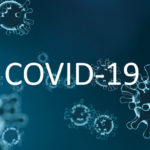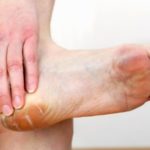Vitamin D plays a vital role in the development of the skeletal system. Vitamin D aids in the absorption of calcium and phosphate in the intestines and kidneys, thereby increasing the efficiency of calcium utilization for bone formation. Moreover, vitamin D enhances the functioning of the immune system and ensures proper metabolism in the body. However, excessive intake of vitamin D can also lead to complications such as hypercalcemia in children, resulting in a range of symptoms including headache, dizziness, loss of appetite, dry mouth, muscle cramps, constipation, nausea, bone pain, and vascular calcification.

Vitamin D is essential for children’s development
Signs of Vitamin D Deficiency in Children
Excessive sweating: Children with vitamin D deficiency tend to sweat excessively, particularly on the scalp. This is because vitamin D deficiency leads to reduced levels of serotonin, a neurotransmitter that supports various bodily functions such as sleep, mood, bladder control, and bowel function. Sweating is more pronounced at night.
Delayed teething: Vitamin D deficiency impairs the body’s ability to support tooth and bone development, resulting in delayed teething.
Emotional and psychological disturbances: Some children with vitamin D deficiency exhibit irritability, emotional instability, fatigue, stress, and anxiety without any underlying psychological cause.
Sleep disturbances: Vitamin D deficiency affects the nervous system, leading to poor sleep quality and frequent nighttime awakenings.
Vitamin D deficiency can also cause symptoms such as general aches and discomfort, frequent crying, digestive and respiratory problems. Older children and adolescents may experience bone demineralization, fractures, seizures, and heart damage. Infants and toddlers are prone to rickets, characterized by abnormal bone development and joint deformities. Rickets is prevalent in newborns and young children aged 6-23 months, as well as adolescents aged 12-15 years.

Sunlight exposure and consumption of vitamin D-rich foods
Vitamin D Supplementation
Natural foods rich in vitamin D for children who have started eating solid foods include salmon, eggs, mushrooms, liver, cheese, milk, orange juice, cereals, chicken breast, and red meat.
Allow children to receive proper early morning sunlight exposure to increase natural vitamin D production.
Administer vitamin D supplements in appropriate doses: 400 IU daily for full-term infants, and potentially higher doses for preterm infants.
- Excessive sweating, especially on the scalp, and more prominently at night.
- Delayed teething due to impaired bone and tooth development.
- Emotional and psychological disturbances, including irritability, fatigue, stress, and anxiety.
- Sleep disturbances, such as poor sleep quality and frequent night-time awakenings.
- General aches and discomfort, frequent crying, digestive and respiratory problems.
- In older children and adolescents: bone demineralization, fractures, seizures, and heart damage.
- In infants and toddlers: rickets, characterized by abnormal bone development and joint deformities.
Analyzing Distinctions Between Covid-19 and Seasonal Flu Respiratory Illnesses
Have you been feeling under the weather lately? It might be difficult to tell whether it’s Covid-19 or flu symptoms you are experiencing. Fortunately, there are a few identifying factors that can help us differentiate between these illnesses. In this article, we’ll discuss the key differences between Covid-19 and seasonal flu.





































